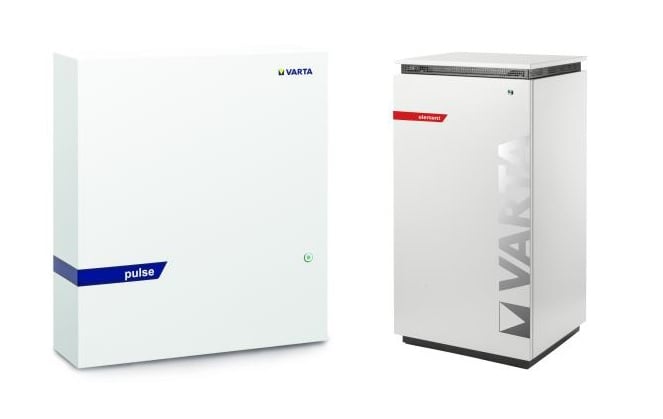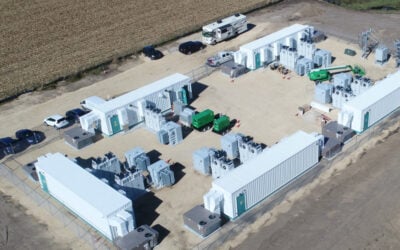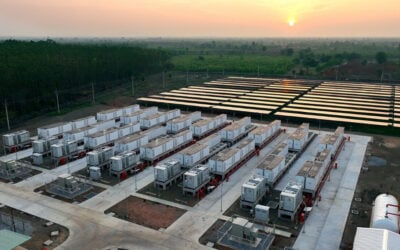
Varta Storage, the energy storage division of consumer, automotive and industrial battery manufacturer Varta, is poised to enter the UK and Ireland residential battery markets through a new exclusive deal with Waxman Energy, as global storage head Gordon Clements told our sister site Solar Power Portal the UK is “the next market that will start to open up” for the technology.
The distributor will incorporate the Varta 'pulse' and 'element' lines into its range in Autumn 2017, continuing the German battery giant’s global strategy of reaching installers through third-party partners.
Enjoy 12 months of exclusive analysis
- Regular insight and analysis of the industry’s biggest developments
- In-depth interviews with the industry’s leading figures
- Annual digital subscription to the PV Tech Power journal
- Discounts on Solar Media’s portfolio of events, in-person and virtual
“We are extremely pleased to have found an experienced distribution partner for the UK and Ireland in Waxman Energy. Our companies share a commitment to deliver not just high-quality and reliable products, but top-class customer service, too,” Clements said.
The VARTA Storage pulse system offers a small, compact wall-mounted energy storage system for domestic use available in two classes – 3.3kWh and 6.5kWh. As a small compact system weighing just 45KG, or 65KG depending on the model, Varta claims it can be installed by one person in less than 30 minutes
Meanwhile the element line, a three-phase all-in-one system with integrated power inverter and battery management system, will be available in four classes from 3.2kWh to a capacity of 13kWh.
The standalone systems are enabled for smart grid applications and offer 10,000 cycles within a 10-year warranty.
Despite the growing commoditisation of batteries and the tendency for some energy storage system providers to view energy storage 'as-a-service' and shy away from competition in the battery hardware market, Clements said Varta is leaning on its expertise in this very area.
“We're not interested in becoming an electricity company or a software company; we're interested in producing a rock-solid battery that has the best performance specification you can get on the market,” he said.
The two partners established the exclusive collaboration when they signed a cooperation agreement in August 2017. Waxman is launching the products at next month’s Solar & Storage Live 2017, taking place between 3-5 October at Birmingham’s NEC.
Richard Waxman, chairman of the Waxman Group, said: “With the addition of the energy storage systems from Varta Storage, we now carry a well thought-out compact system in our portfolio and offer our customers a strong brand that they can rely on.
“Waxman is looking forward to working with this prestigious company and helping to shape the future of battery storage.”
Market could double in two years as it ‘opens up’
The move by the battery company, which dates back to 1887 and has been working with lithium-ion batteries for almost 25 years, comes in preparation for the UK storage market to kick off, as Clements explained earlier today.
“Today we don't see the UK domestic storage market as being very big. Economically it doesn't make sense right now but we've been watching the market over the last nine months looking for a reasonable partner. We see the UK as the next market that will start to open up so we have to position ourselves with a good partner,” he said.
Clements added that he believed the UK residential storage market would double in 2018 and again in 2019 before the business case for storage increases following the closure of the UK’s solar feed-in tariff.
However, this growth will be dependent on the role of government in ensuring the right support is in place across a range of areas to allow storage to flourish.
“Growth in the UK domestic storage market will depend on several key factors, mainly the government and how much support it gives to solar, storage, fast frequency response, virtual power plants and these kinds of applications. Recently they seem to be showing more interest than they have done but it’s hard to predict,” Clements said.
However, Varta maintains that it must be in the UK to take advantage of future activity in this area, particularly to build relationships with installers.
Clements said: “We want to get access to the installers because the thing that's common across all markets is that the installer is really the key person. The installer is seen to be independent by the consumer so if they make an assessment to buy Varta storage products, people will do so.”
Back in July 2016, Energy-Storage.News interviewed Varta Storage project manager Michael Gopp on the German launch of the company's energy storage systems, where Gopp aired his views on the past, present and future of the energy storage market.






